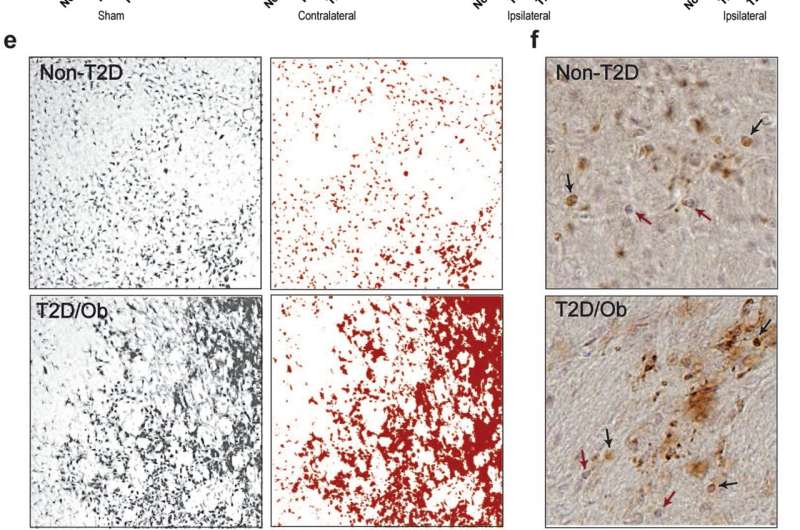So with your almost complete loss of being able to do any exercise your doctor will have to have the dietician create exacting diet protocols to lose weight.
Weight loss may repair the brain after stroke in diabetes

People with type 2 diabetes have an increased risk of stroke and slower recovery from it. Now, researchers at Karolinska Institutet have shown that neurological recovery from stroke is significantly improved in mice with obesity and diabetes who achieve weight loss to the extent that glucose metabolism returns to normal levels. The results are published in the scientific journal Cardiovascular Diabetology and may have clinical relevance for stroke rehabilitation in type 2 diabetes.
The prevalence of diabetes in the world is expected to rise dramatically to 700 million people in 2045. Stroke is one of the major complications in people with diabetes who are not only at higher of stroke, but also have diminished and slower recovery in the rehabilitation phase. While lifestyle changes, including weight loss, can partly reduce the risk of stroke, no study has investigated whether such an approach can also result in a better neurological recovery after stroke.
The results of the study demonstrate the efficacy of weight loss, through a diet intervention, to improve neurological recovery after stroke. Importantly, the weight loss needs to be long lasting and lead to the overall improvement of metabolism, i.e. normalization of glycemia and insulin resistance. A shorter dietary change leading to the same weight loss but not to the improvement of the overall metabolic profile, was ineffective to facilitate neurological recovery after stroke.
"This suggests that people with diabetes might have a better prognosis after a stroke, if weight loss will be given a high priority after diabetes is diagnosed," says Dimitra Karampatsi, MSc and Ph.D. student at the Department of Clinical Science and Education, Södersjukhuset, Karolinska Institutet (KI SÖS) and first author of the study.
The researchers now plan to go ahead and study the association in a clinical registry study.
No comments:
Post a Comment